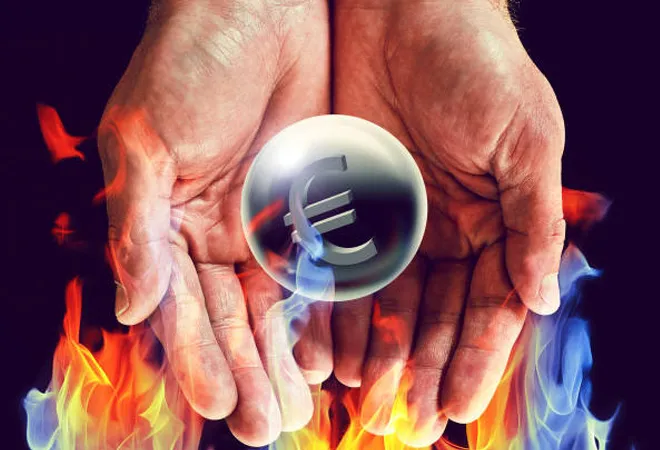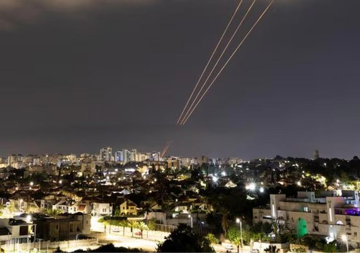
The energy crisis in Europe has been an issue of concern for a few years now. Though it has been making efforts to reduce its dependence on fossil fuels, especially on Russia, it has not been able to achieve much success. A primary reason for this is that energy demand has increased while investments in renewable resources and other forms of alternative energy have not kept pace.
The 2014 Russia-Ukraine energy crisis made it apparent to the European Union (EU) that an alternative to Russian energy resources is much needed. The EU has taken steps to gradually reduce its dependency on Russia for energy imports. In 2021, it
imported 39.2 percent of gas, 24.8 percent of crude oil and 46 percent of coal from Russia. The energy resources
represented “62 percent of EU imports from Russia in 2021 (99 billion euros), indicating a significant drop of almost 15 percentage points compared with 2011 when energy represented almost 77 percent of EU imports from Russia (€148 billion)”. Nonetheless, while the EU has been able to reduce its imports, it continues to be dependent on Russian energy. The crisis in Ukraine has exacerbated the need to reduce this dependency in a time-bound manner.
The European Union (EU) member states have not only put sanctions on Russian energy resources, but are also exploring alternative sources to secure the supply of essential energy resources and, implementing various policies and initiatives in place to cushion the blow of high energy prices.
While the initial concerns were related to Kremlin using its dominance in the European energy market to restrict energy exports when faced with potential sanctions; the debates in Europe have changed as the conflict has progressed. The European Union (EU) member states have not only put sanctions on Russian energy resources, but are also exploring alternative sources to secure the supply of essential energy resources and, implementing various policies and initiatives in place to cushion the blow of high energy prices.
For its part, Gazprom, the largest Russian energy company, has also been gradually restricting its energy imports to Europe since 2021. After the implementation of sanctions by the EU, the supplies were further reduced with Russia demanding the European companies to pay in rubles. This led to the disruption of energy flows, partially or completely, to
several EU states. The energy crisis deepened with Moscow completely shutting off Nord Stream 1 in early September 2022, with Russia claiming that an oil leak in the pipeline could not be fixed due to sanctions on the country. This led to a further increase in the price of natural gas in Europe. The urgency of the situation was further highlighted by the European Commission President Ursula Von Der Leyen during her
State of the Union Speech, in September 2022, when she said ‘We have to get rid of this dependency all over Europe’.
What has been done?
The EU has acted decisively to diversify its energy basket away from Russia. The EU, in its fifth and sixth round of sanctions, included an import ban on all forms of Russian coal and an import ban on all Russian seaborne crude oil and petroleum products. Apart from sanctioning Russian energy resources, the EU has taken two-pronged measures to diversify its energy resources away from Moscow—first, is through securing alternative supplies of resources. The Union has reached out to
countries such as Qatar, the US, Norway, Azerbaijan, Algeria, Turkey, Japan, Egypt, and South Korea to secure gas exports as alternatives to Russia.
Second, the EU has put forward various policies and initiatives to soften the impact of the energy crisis. It launched RePowerEU Plan in March 2022 in which member states declared their intent to reduce the supply from Russia by two-thirds by the end of 2022. A comprehensive RePowerEU Plan was released in May 2022, which laid out the roadmap for rapidly reducing the EU’s dependence on Russian fossil fuels. It aimed to accelerate the clean energy transition by speeding-up and scaling-up renewable energy in power generation, industry, buildings and transport. The European Commission proposed to increase the target in the Renewable Energy Directive to 45 percent by 2030, up from 40 percent in 2021. This would bring the total renewable energy generation capacities to 1,236 GW by 2030, as compared to 1,067 GW by 2030 envisaged under the ‘Fit for 55’ framework.
A comprehensive RePowerEU Plan was released in May 2022, which laid out the roadmap for rapidly reducing the EU’s dependence on Russian fossil fuels.
Three key measures were also enunciated by EU Commission President during the aforementioned speech—first, an EU-wide plan to introduce mandatory power savings during peak hours. The EU has already put in place a voluntary initiative, Gas Reduction Plan, to conserve energy resources for the upcoming winter. The idea is to lower demand for gas by 15 percent from August 2022 through March 2023; second, use the surplus profits of fossil fuel companies; and third, place a cap on the revenues made by renewables and nuclear plants. These measures are expected to raise an estimated 140 billion euros to help control energy prices and household bills. These measures are to be discussed during the forthcoming Energy Ministers’ meeting scheduled for 30 September 2022.
Apart from these, several European states have taken measures at the national level to tackle the rising energy prices, such as Germany which authorised a 65 billion euros
relief package to ease pressures on households; Italy approved an
aid package worth 14 billion euros on 16 September to shield firms and families from surging energy costs, and the
UK capped household gas and electric bills at GBP 2,500 a year for the next two years.
Assessment
The 2022 Russian invasion of Ukraine has bought the debates on energy diversification to the forefront with the question of energy dependency gaining new urgency, due to the notion that the revenues from the exports of energy resources might be
financing Russia’s actions in Ukraine.
Through its various policies and initiatives, the EU is scrambling to find ways to cushion the blow of high energy prices and economic slowdown for the common household. However, it is easier said than done. The
International Monetary Fund (IMF) in its assessment of July 2022 stated that in the event of an unprecedented total shutoff of energy resources from Russia, the GDPs of Central and Eastern European countries such as Hungary, Slovakia, and the Czech Republic could drop by up to 6 percent and
global economic growth would drop by 2.6 percent in 2022 and another 2 percent in 2023.
One of the key challenges for the EU is to manage supply and demand. The Union has tried to address the supply side by diversifying its resources away from Russia by looking at countries such as the US, Qatar, etc. to finalise agreements for natural gas and LNG. However, the caveat in this is that increasing the energy flows from these countries would require new pipeline infrastructures and for the LNG, more dedicated terminals. These processes are time-consuming and can take up to two-to-five years to become operational. To manage the demand side, in line with the EU’s voluntary gas reservation plans, several European countries such as Germany, Spain, etc. have approved energy conservation measures to increase their respective gas reserves to above 80 percent. However, the stability of these reserves would depend on the intensity of the winter season as it could lead to soaring demand, more than what the reserves could handle.
The sanctions on the import of crude oil from Russia caused a rift within the Union, with certain member states expressing their inability to follow the timelines imposed by the Union.
Second, is the implementation of its RePowerEU initiative. As the initiative is aimed at fast-forwarding the clean energy transition by bolstering the renewable energy contribution in the larger energy matrix of the Union—it would also require increased investments in infrastructure projects all over the Union. These would include faster installations of wind and solar projects which are still at a nascent stage. As the timelines of the plans have shortened, the timely delivery of the projects remains a key question. Also, fully replacing fossil fuels is going to take time and political will from the member states to ramp up the renewables to a high enough level to seriously make a dent in energy consumption.
Third, the key challenge is how far the solidarity amongst the member states would continue. The sanctions on the import of crude oil from Russia caused a rift within the Union, with certain member states expressing their inability to follow the timelines imposed by the Union. Four member states—Hungary, Slovakia, the Czech Republic, and Bulgaria—resisted the initial timeline put forth by the European Commission of a complete phase-out of all Russian crude oil in six months and all refined oil products by the end of 2022 arguing that given their higher dependencies on Russian oil, they cannot make the switch to other providers in a short period, without jeopardising their national economies. As a result of these objections, the sanctions were placed only on sea-borne imports while excluding all pipeline supplies. This was followed by Hungary signing a new agreement with Gazprom for receiving up to 5.8 million cubic meters of gas per day. This agreement comes on top of a 15-year deal Budapest signed with Gazprom in 2021 for the supply of 4.5 billion cubic metres of gas per year. Similarly,
Norway, in August 2022, was criticised by the Nordic countries for its decision to curb energy exports to protect Norwegian consumers.
In short, what can be concluded is that while the EU has put in place the mechanisms and initiatives to cope with the situation, these initiatives are going to take time to bear results and much would depend on the weather conditions. Therefore, there are limited signs of the energy crisis improving any time soon and the road for the EU to achieve energy security remains expensive and challenging.
The views expressed above belong to the author(s). ORF research and analyses now available on Telegram! Click here to access our curated content — blogs, longforms and interviews.



 The energy crisis in Europe has been an issue of concern for a few years now. Though it has been making efforts to reduce its dependence on fossil fuels, especially on Russia, it has not been able to achieve much success. A primary reason for this is that energy demand has increased while investments in renewable resources and other forms of alternative energy have not kept pace.
The 2014 Russia-Ukraine energy crisis made it apparent to the European Union (EU) that an alternative to Russian energy resources is much needed. The EU has taken steps to gradually reduce its dependency on Russia for energy imports. In 2021, it
The energy crisis in Europe has been an issue of concern for a few years now. Though it has been making efforts to reduce its dependence on fossil fuels, especially on Russia, it has not been able to achieve much success. A primary reason for this is that energy demand has increased while investments in renewable resources and other forms of alternative energy have not kept pace.
The 2014 Russia-Ukraine energy crisis made it apparent to the European Union (EU) that an alternative to Russian energy resources is much needed. The EU has taken steps to gradually reduce its dependency on Russia for energy imports. In 2021, it  PREV
PREV


